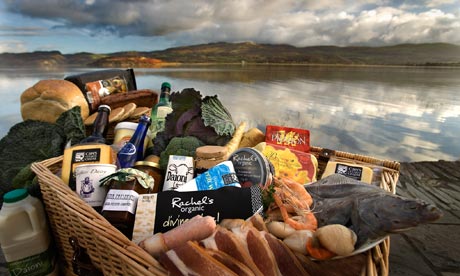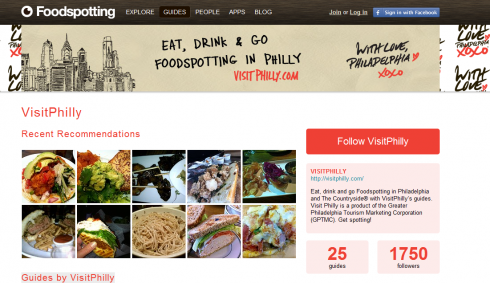Food for Thought! Gastronomy as a Destination USP
September 20, 2012
Posted By: Manolis Psarros
 The "Global Report on Food Tourism", which has just been published by UNWTO, provides an extensive analysis of the current situation of food tourism, identifying the importance of gastronomy in the development of tourism destinations worldwide and reviews the global trends in food tourism.
According to the results this survey, 88.2% of respondents consider that gastronomy is a strategic element in defining the brand and image of their destination. Only 11.8% were of the opinion that gastronomy plays a minor role.
However, a smaller percentage of respondents believe that their country has its own gastronomic brand: only 67,6% responded in the affirmative. In fact, a considerable percentage (32,3%) believe that their country has not structured its own brand of gastronomy, meaning that, in general, destinations still have some ways to go in terms of their strategic reflection on gastronomic tourism.
As for gastronomic tourism products that exist in their destination, the organizations consulted underlines in the first place the importance of food events (expressed by 79% of respondents). This is followed by gastronomic routes and cooking classes and workshops, with 62% answering affirmatively, food fairs featuring local products (59%) and visits to markets and producers (53%).
The "Global Report on Food Tourism", which has just been published by UNWTO, provides an extensive analysis of the current situation of food tourism, identifying the importance of gastronomy in the development of tourism destinations worldwide and reviews the global trends in food tourism.
According to the results this survey, 88.2% of respondents consider that gastronomy is a strategic element in defining the brand and image of their destination. Only 11.8% were of the opinion that gastronomy plays a minor role.
However, a smaller percentage of respondents believe that their country has its own gastronomic brand: only 67,6% responded in the affirmative. In fact, a considerable percentage (32,3%) believe that their country has not structured its own brand of gastronomy, meaning that, in general, destinations still have some ways to go in terms of their strategic reflection on gastronomic tourism.
As for gastronomic tourism products that exist in their destination, the organizations consulted underlines in the first place the importance of food events (expressed by 79% of respondents). This is followed by gastronomic routes and cooking classes and workshops, with 62% answering affirmatively, food fairs featuring local products (59%) and visits to markets and producers (53%).
 68% of the organizations consulted carry out marketing activities or promotion based on food tourism. The marketing and promotional tools most used by these entities are: organizing events (91%), producing brochures and advertising (82%) and dedicated websites on food tourism (78 %). At a lower level are promotional tools such as tourism guides (61%), blogs (43%), and familiarization trips for journalists and tour operators (13%). And lastly, only 4% of the organizations surveyed said they used social networks for the promotion of food tourism.
Asked about the existence at their destination of collaboration between the tourism sector and local gastronomy actors (producers, restaurants, markets, etc.), the general opinion is that there is cooperation on concrete marketing actions, in particular, with local restaurants, but there are currently no stable instruments of cooperation for the development and promotion of food tourism. In fact, 37.5% of respondents recognize that collaboration does not exist or is not very significant.
Key conclusions are drawn concerning firstly the need for the creation of plans to establish development guidelines and create gastronomic tourism products for destinations. In the field of marketing and promotion, it is important for destinations to seize the opportunity represented by gastronomy for the definition of a strategy to build the image and brand of destinations. Key factors are: bringing chefs on board as interpreters of the territory, the development of high-quality and credible promotional tools—such as food guides—the organization of events, the media and use of the Internet and social networks.
Full Report here
Check out Some recent Posts on Food Tourism and Destination Marketing Campaigns!
Targeted Destination Marketing: Engaging the Foodies
Grassroots Destination Marketing Initiatives
France & Wine Tourism Collaboration
68% of the organizations consulted carry out marketing activities or promotion based on food tourism. The marketing and promotional tools most used by these entities are: organizing events (91%), producing brochures and advertising (82%) and dedicated websites on food tourism (78 %). At a lower level are promotional tools such as tourism guides (61%), blogs (43%), and familiarization trips for journalists and tour operators (13%). And lastly, only 4% of the organizations surveyed said they used social networks for the promotion of food tourism.
Asked about the existence at their destination of collaboration between the tourism sector and local gastronomy actors (producers, restaurants, markets, etc.), the general opinion is that there is cooperation on concrete marketing actions, in particular, with local restaurants, but there are currently no stable instruments of cooperation for the development and promotion of food tourism. In fact, 37.5% of respondents recognize that collaboration does not exist or is not very significant.
Key conclusions are drawn concerning firstly the need for the creation of plans to establish development guidelines and create gastronomic tourism products for destinations. In the field of marketing and promotion, it is important for destinations to seize the opportunity represented by gastronomy for the definition of a strategy to build the image and brand of destinations. Key factors are: bringing chefs on board as interpreters of the territory, the development of high-quality and credible promotional tools—such as food guides—the organization of events, the media and use of the Internet and social networks.
Full Report here
Check out Some recent Posts on Food Tourism and Destination Marketing Campaigns!
Targeted Destination Marketing: Engaging the Foodies
Grassroots Destination Marketing Initiatives
France & Wine Tourism Collaboration

COMMENTS